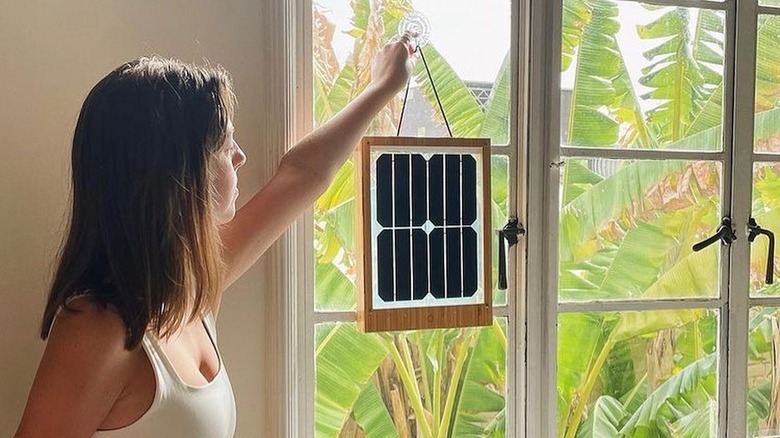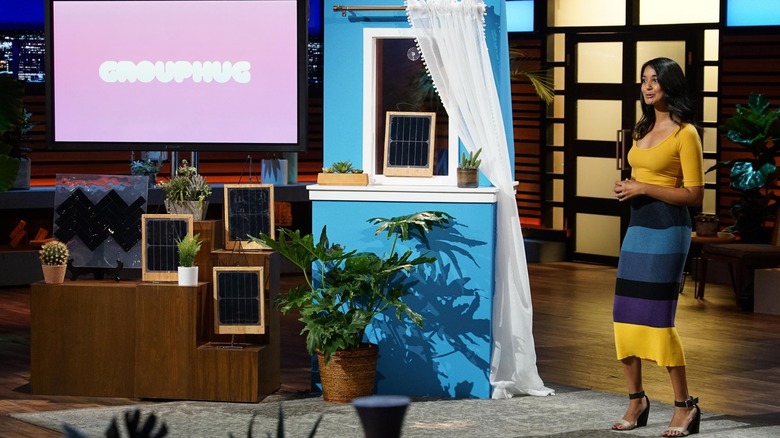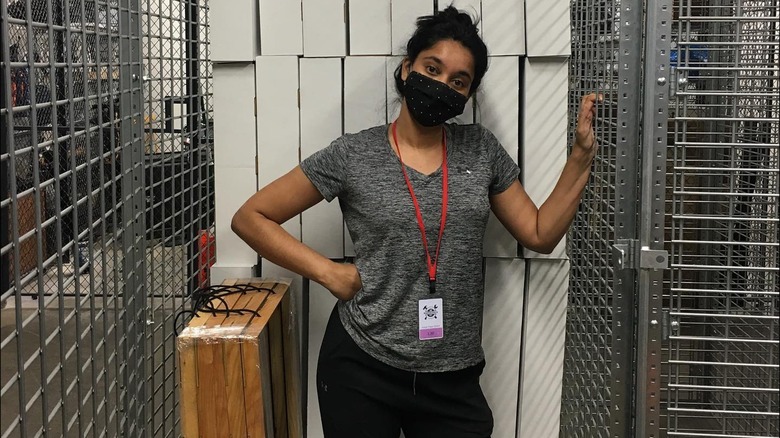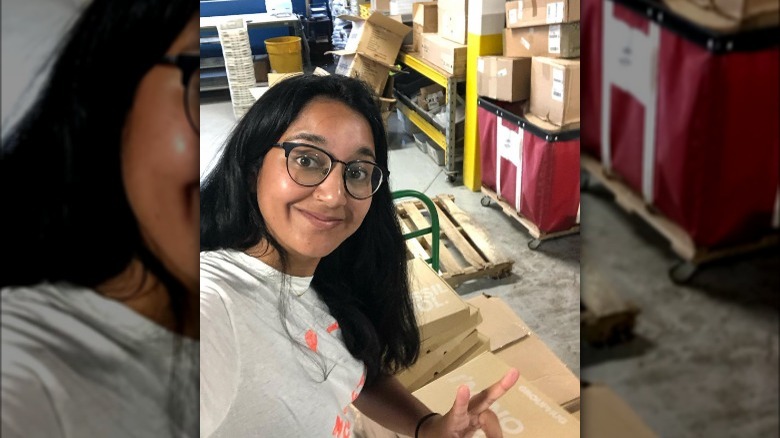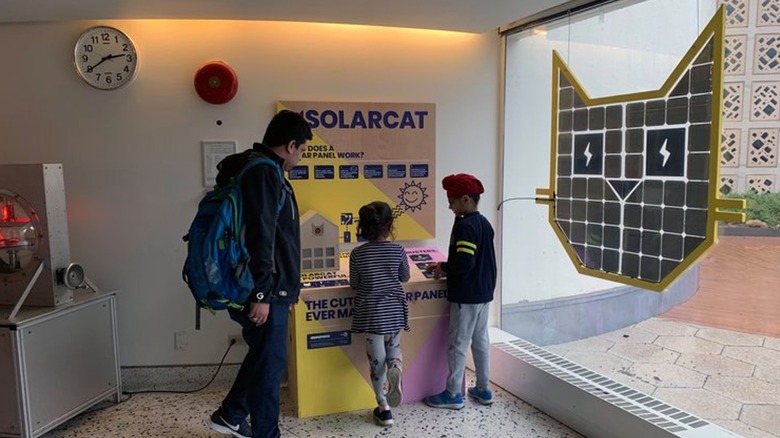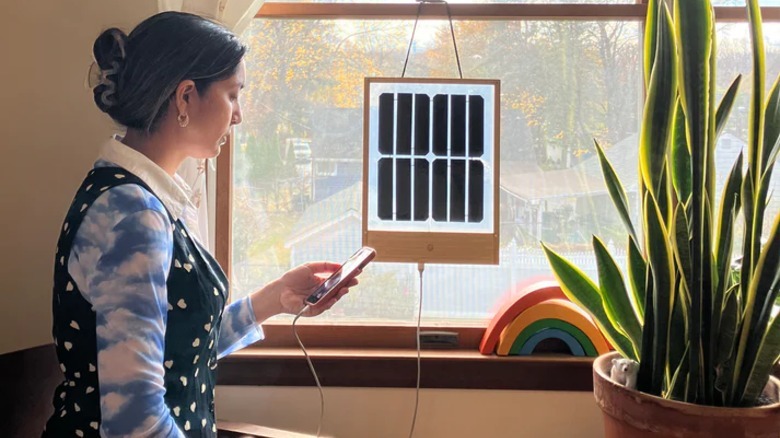Whatever Happened To Grouphug Solar Panels For Windows After Shark Tank Season 11?
We may receive a commission on purchases made from links.
Global climate change is not a problem we can afford to ignore much longer. According to the United Nations, humankind has less than a decade to make a change before the issue causes irreversible damage to the planet. While most of the burden relies on major corporations, everyday individuals can also do their part. You may have already incorporated some greener habits into your life, such as using paper straws, eating more plant-based foods, or simply turning off the faucet while you brush your teeth. But have you thought about using solar power to charge that electric toothbrush?
Adding solar panels to your home can increase its value, but not everyone is ready to take the leap into such an investment. Luckily, innovators like Krystal Persaud understand that small steps can still make a big difference for our planet. A first-generation New Yorker who started out as a humble industrial design intern, Persaud founded the Grouphug solar panel. This ingenious product allows anyone to charge small devices from a window in their home — no complicated installation required.
Each solar panel has a built-in 10-watt panel with a 3,400 mAh battery, perfect for charging smartphones, tablets, bike lights, or anything else with a USB charger. Persaud understood that older folks often poke fun at millennials like her, but she explained, "One thing this generation really cares about is taking care of the planet." In March 2020, Persaud premiered Grouphug on Season 11, Episode 16 of "Shark Tank" (available on Prime), but did her idea reel in any sharks? Here's what happened on "Shark Tank" and how Grouphug fared after the episode.
What happened to Grouphug on Shark Tank?
Krystal Persaud entered the Shark Tank and asked for $150,000 in exchange for 10% equity in her company. She had already earned over $80,000 since launching the company in June of that year, but shipping and marketing were still valid concerns. While the panel model was a bit primitive, Persaud promised that it was only the beginning for Grouphug and that more designs were on the way. For example, there was the Solar Cat, a large cat-face-shaped panel that she had custom-made for the New York Hall of Science in Queens. At the time, the museum was the only owner of a Solar Cat, but Persaud explained that other businesses had shown an interest in the eye-catching idea and said she would love to spread Solar Cats all across the country.
Kevin O'Leary declared himself out because the product simply wouldn't generate enough money. Three others followed suit: Lori Greiner felt that the product hadn't yet received enough feedback from consumer, while Barbara Corcoran loved the idea and presentation but felt that the product itself wasn't pretty. Rohan Oza agreed that the design needed work, saying, "This thing can be replicated in a New York Minute." Finally, there was only one shark left: Mark Cuban. "The execution needs a lot of work, but I'll make you an offer," said Cuban. "I'll give you the $150,000, but I want 25%." After a very brief exchange, Persaud decided to accept Mark's deal.
Grouphug after Shark Tank
In the early days following the "Shark Tank" debut, Krystal Persaud's company struggled to keep up with supply chain shortages amidst the COVID-19 pandemic. Kickstarter rewards had to be delayed and by 2020 still hadn't been shipped out. Persauds's B2B orders and public installations of the Solar Cat and other units also had to be temporarily put on hold. However, Grouphug was able to stay strong and eventually pulled through, finding success on the other side of the bleak tunnel that was 2020.
Since Krystal Persaud pitched her idea to the sharks, her company has gained a lot of traction with the help of shark Mark Cuban. Persaud and her team have consistently stayed in touch with the businessman, heeding his intelligent words of advice and updating him throughout the business' success. Grouphug even hosted a live stream Q&A session with Mark, attended by viewers from cities all around the nation. Outside of their publicity on "Shark Tank," the Grouphug solar panel has also been featured in several media publications like BuzzFeed and People.
Is Grouphug still in business?
Yes, Grouphug is still in business — and thriving at that! Grouphug stays active on its website and social media pages, including Facebook and Instagram. In March 2021, one year after Grouphug premiered on "Shark Tank," Krystal Persaud wrote on the company blog, "The national exposure from 'Shark Tank' has been incredible! We have sold solar chargers in 49 out of 50 states across the country. The only state missing is North Dakota (reach out if you are from ND)!" Shortly after, the company accomplished that goal. Persaud was also able to successfully patent her product in August of 2021.
The solar panel is currently available on Grouphug, listed at $149.00 each. For a price that reasonable, you might reconsider DIYing any major solar panel installation! Due to high demand and a few supply chain hiccups, the iconic window solar panel unit sold out on several occasions, prompting Grouphug to create a waitlist for fascinated buyers. If you can't snag a solar panel in time before they sell out again, the company also offers cute merch, including ballcaps and tote bags to show your support.
The future of Grouphug solar panels
Grouphug has undoubtedly stayed busy with restocking products online and filling out orders, but behind the scenes, Krystal Persaud and her team have also been working on creating more innovative and aesthetically pleasing products. Notably, the company explored new ideas with samples of organic photovoltaic film — a type of thin solar film that can be used to make more unique and artistic shapes. Plus, this film doesn't block all sunlight from passing through, making it an awesome material for spaces that need the natural light. Additionally, the company has teased prototypes for a solar-powered hat, perfect for charging your phone on long hikes or beach days. As the company continues to grow, Grouphug could potentially become very popular for people with nomadic and off-grid lifestyles.
While we aren't aware of any new kitties out there, it's possible that Persaud will continue with her dream to put Solar Cats all across New York City and beyond. Outside of the business, she is still a strong advocate for climate change policy, frequently spreading awareness on social media and promoting solar panels as perhaps the easiest way to make your home more eco-friendly. Recently, Persaud also gave birth to a healthy baby daughter and is navigating the joys of parenthood for the first time. Is there anything she can't do?
Grouphug pursues new horizons in design
While some more unusual prototype ideas like the solar charging hat have since fallen off the radar, Krystal Persaud is still improving her original product's design both inside and out. At the tail end of 2024, Grouphug proudly launched its second edition of the Window Solar Charger, this time made with solid bamboo frame that looks sleek and is built to last. Persaud still encourages creativity within the technological design field. For Earth Month, she hosted an interactive solar panel workshop at the Museum of Design in Atlanta. "Here's a reminder that the climate movement desperately needs more JOY and CREATIVITY. Solutions come in all shapes & sizes," the innovator wrote on Instagram. That same post celebrated the fifth anniversary of her Solar Cat installation, which remains on display at the New York Hall of Science. Persaud also hinted to commenters that smaller Solar Cat panels may soon be hitting the Grouphug store.
While Grouphug has faced its fair share of struggles, Persaud's passion for creative design and a healthier planet has kept the company spirit alive and well. "My favorite part of the design process is prototyping," she said (via Instagram) "When I get a new idea, I cannot wait to get my hands on some material and make that idea a reality. I think it's so exciting to see something you've sketched up in 3D for the first time." Some of Persaud's recent experiments have included charming designs like a strawberry shape and even a pressed flower panel. "I wasn't sure how the flowers were going to look with the solar cells," Persaud said in an Instagram reel, "But I think the end result is really cute –- which has always been my goal. Can we make cute solar panels?" With an outlook as sunny as Persaud's, we think anything is possible.
